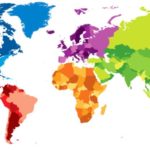
After a high-level tour of refugee centers in Bangladesh, the United Nations High Commissioner for Refugees is more convinced than ever of the importance of biometric IDs for helping displaced people.
The visit was conducted by Volker Türk, the Assistant High Commissioner for Protection at the United Nations’ refugee agency, who visited Bangladesh to assess the country’s situation with respect to its many Rohingya muslim refugees, who have fled neighboring Myanmar in the wake of genocidal persecution. UNHCR officials began experimenting with issuing the refugees biometric identity documents in 2017, on the basis that biometrics can help to reliably identify individuals even if they don’t have official, state-issued IDs on hand.
At this point, over 125,000 Rohingya refugees have been issued such biometric ID cards, and in a statement concerning his recent tour in Bangladesh, Türk asserted the cards’ importance to the displaced Rohingya, saying they “are important means to protect their identity and their right to return to Myanmar.”
“The Rohingya represent the largest group of stateless refugees in the world,” he said. “Many have never had proper identity documents. This is a big milestone in protecting their identity.”
In addition to helping to secure the refugees’ right to return to their homes, in Bangladesh the cards help individuals to access services and to receive humanitarian aid. The UNHCR has also been extending these same benefits to other refugee populations elsewhere in the world, with this biometric approach to identification now being normalized as a standard part of aid for displaced populations.
–
March 26, 2019 – by Alex Perala






Follow Us